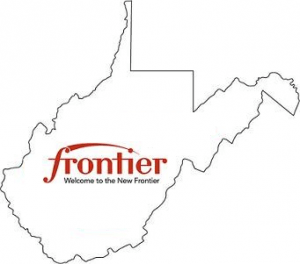 Despite findings from an independent consultant that reported West Virginia wasted millions on a broadband expansion effort that effectively built a private, taxpayer-funded fiber network for Frontier Communications, the governor’s office abruptly canceled a 2011 follow-up state audit of the $126.3 million project.
Despite findings from an independent consultant that reported West Virginia wasted millions on a broadband expansion effort that effectively built a private, taxpayer-funded fiber network for Frontier Communications, the governor’s office abruptly canceled a 2011 follow-up state audit of the $126.3 million project.
The Charleston Gazette reports Gov. Earl Ray Tomblin’s office said it dropped the audit because Frontier “answered or addressed” issues raised in a memo produced by an out-of-state independent consulting firm.
ICF’s document was so scathing of the state government’s handling of federal broadband stimulus funds, the governor’s office kept it secret until a copy was independently leaked to the Charleston newspaper. The governor’s office said it initially withheld the “internal memorandum” produced by Vienna, Va.-based ICF International because it proved “embarrassing to some people.”
 Among ICF’s findings:
Among ICF’s findings:
- Taxpayers underwrote the construction of a Frontier Communications’ owned and operated fiber broadband network so fragmented in its construction, the only entity likely to benefit is Frontier Communications;
- ICF found West Virginia’s broadband grant program created an “unintended monopoly” for Frontier Communications, and an unusable ‘open access’ network except for Frontier;”
- Frontier’s documentation and expense reports, submitted for reimbursement by taxpayers were inadequate and could have resulted in double billing;
- Frontier overbuilt its network with excessive numbers of fiber strands three to six times above industry standards, driving up construction costs.
Frontier’s called the ICF report “worthless” and accused the consultant of using inaccurate and stale comments that repeat “previously repudiated allegations.”
Frontier also produced its own company-sponsored “external audit” of its work on the $126.3 million broadband project that found “no material deficiencies.”
But ICF says it is standing by its report, and documented instances where the state authorized Frontier to spend significant sums to build fiber connections to community institutions that were later scaled back by the company. Whether Frontier was paid for the originally scheduled work, or for the scaled back construction eventually completed, is unknown.
At this point, ICF reports it is resigned to the fact Frontier will be a major beneficiary of the taxpayer-funded fiber infrastructure and the state has few options to fix the problems they created. The consultant firm says the only workable option would be a joint effort by Frontier’s competitors to build, at their own expense, a “middle-mile, open-access network” that can interconnect with Frontier’s taxpayer-funded network, assuming Frontier will allow it.
 A major critic of the broadband stimulus program in West Virginia, Citynet President Jim Martin, has long said the broadband project was primarily going to benefit Frontier.
A major critic of the broadband stimulus program in West Virginia, Citynet President Jim Martin, has long said the broadband project was primarily going to benefit Frontier.
In September 2010, Martin told the Gazette, “Frontier is going to have the state’s business forever. No other company will have the money to come in and build the network.”
Two months later, Martin was back ringing the alarm bell before more than $126 million in taxpayer funds were spent.
“The state represented it would build a ‘middle-mile’ network reaching 700,000 homes and 100,000 businesses, and it would be this great new superhighway and do all the things the federal government is seeking,” Martin told the Gazette. “But afterward, Citynet and others got to look and it looks like it is a windfall for Frontier Communications only.”
“We’ll ultimately prove this was a complete sham and didn’t benefit anybody,” Martin said. “We’re here. We’re not going anywhere. We totally recognize this is going to be a long battle unless the Broadband Council or the new governor or the next governor does something. We’re going to be on this for however many years it takes. We’re going to hold the state accountable for every single dollar they’re spending. At the end of the day we will show that no jobs were created, there’s no benefit to the citizens of West Virginia. Hopefully we’ll show this was all about Frontier.”
Three years later, Martin is still trying to get accurate broadband maps that depict exactly where Frontier has laid its publicly funded fiber infrastructure. Apparently they are secret, too.


 Subscribe
Subscribe
Has the Charleston Gazette released the ICF report or is it available elsewhere online?
I have been hunting for a copy and have yet to find one online. The Gazette did not publish the copy they have, or at least not in a form easy to locate.
I’ve looked all over their website to no avail. I think it would make a very interesting read.